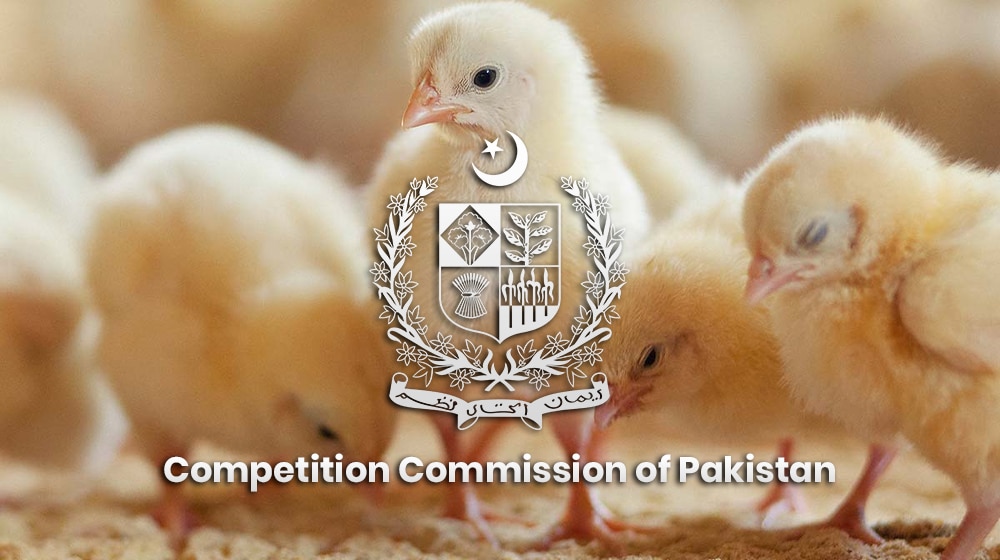The Competition Commission of Pakistan (CCP) has imposed a total fine of Rs. 155 million on eight leading poultry hatcheries after uncovering a cartel engaged in the price-fixing of day-old broiler chicks (DOCs).
Acting on a suo motu notice, the CCP launched a detailed investigation into allegations of collusion within the DOC market. The probe revealed that several major hatcheries — including Sadiq Poultry, Hi-Tech Group, Islamabad Group, Olympia Group, Jadeed Group, Supreme Farms (Seasons Group), Big Bird Group, and Sabir’s Group — were involved in coordinated pricing practices, violating Section 4 of the Competition Act, 2010.
How the Cartel Operated
The hatcheries used a WhatsApp group named “Chick Rate Announcement,” managed by Dr. Shahid, Marketing Manager at Big Bird Group, to coordinate daily price announcements. Prices for the following day were routinely shared via phone messages or WhatsApp.
Key figures from the Pakistan Poultry Association (PPA) — including Dr. Abdul Karim, Chairman of the Hatchery Affairs Committee, and Major (R) Syed Javaid Hussain Bukhari, Secretary General — were also part of this communication loop. From 2019 to 2021, the group exchanged pricing information nearly 198 times — 108 via text messages and 87 through WhatsApp.
READ MORE: Meta Launches AI App Powered by Llama 4, Sparking Debate Over Data, Personalization, and Trust
Rather than discouraging the exchange of price-sensitive data, senior PPA officials facilitated the practice. This coordination resulted in uniform DOC prices across Punjab, with minimal freight-based price adjustments for markets in Multan and Karachi.
The collusion contributed to a staggering 346% price increase in DOCs between March 2020 and April 2021, with prices jumping from Rs. 17.92 to Rs. 79.92 per chick. This price spike was a significant factor in the broader inflation of broiler meat prices, negatively impacting consumers.
CCP’s Position and Future Outlook
The CCP emphasized that Section 4 of the Competition Act strictly prohibits collusive agreements that manipulate prices, control supply, or restrict production — all of which harm healthy competition and exploit consumers. It warned that trade associations are meant to foster industry growth, not act as platforms for anti-competitive behavior.
Alarmingly, the CCP has received fresh complaints suggesting that similar collusive practices may be resurfacing. Recent DOC prices have soared as high as Rs. 230 per chick, far above the estimated fair market value of Rs. 78.
The Commission reiterated its warning: cartelization undermines free markets, inflates food costs, and amounts to societal exploitation. It encouraged the public to report anti-competitive behavior via its official complaint portal.



